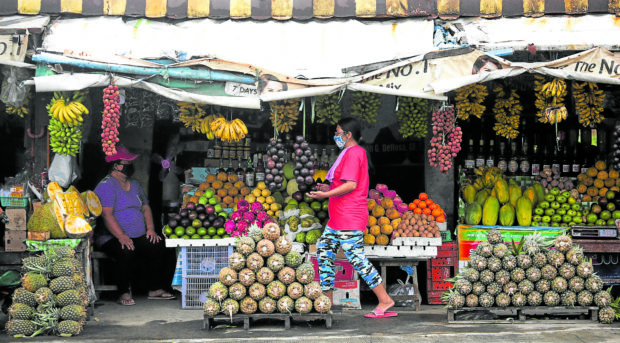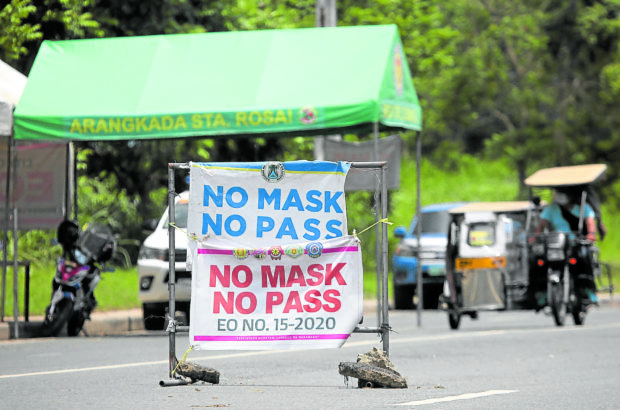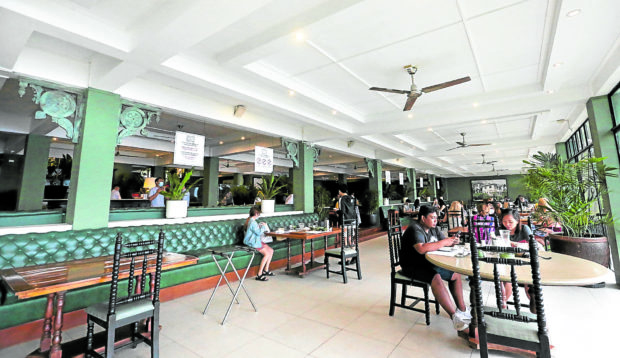New weekends in Tagaytay
TAGAYTAY CITY, Cavite, Philippines — At the city rotunda, a big streamer telling people to stay home and keep their face masks on is conspicuously hung to welcome travelers to this major tourist destination in Cavite province.
It may have to stay there for a while for people to see, so the audio recordings play repeatedly between bossa nova and jazz music in coffee shops and restaurants that have since reopened on a limited seating capacity.
The city government has distributed copies of the audio recording for restaurants to play and remind diners about “SECURE”—a mnemonic device it coined for sanitizing, exercising the use of face masks, covering the nose and mouth, utilizing thermal scanners, refraining from unnecessarily touching objects and ensuring social distancing as the country battles the new coronavirus disease (COVID-19).
A Filipino version of the IEC (information, education and communication) material is also constantly played from loud speakers in the city’s villages to remind residents that they are living in extraordinary times.

SELLING POINT A panoramic view of a calm Taal Volcano has become a major selling point for businesses and property owners in Tagaytay City. A favorite weekend getaway of residents of Metro Manila and nearby provinces in Calabarzon region, this premier city in Cavite province has yet to recover from the twin impact of the Taal eruption in January and the coronavirus pandemic. —PHOTOS BY LYN RILLON
Rising cases
“We have to be very strict [with policies] but there are instances where we have to call the attention of business owners when we get reports of people not wearing their masks, or not observing distancing,” said Liza Capupus, city health officer.
“We have to keep reminding people [as] what we need is behavioral change,” she added.
Tagaytay, which overlooks Taal Volcano, started off with only two cases of COVID-19—nurses who caught the virus in April from hospitals outside the city.
But when border restrictions were eased, the city saw a surge in the number of infections, with 22, 16 of which were active cases as of July 23.
“They are a returning seafarer, a businessman and a construction worker—people who have travel history to [Metro Manila] and other places,” Capupus said.
To plug the losses of a bleeding economy, which has yet to fully recover since the eruption of Taal Volcano in January, Capupus’ office and the Tagaytay Tourism Council have agreed to reopen restaurants, including stalls serving Tagaytay’s famed “bulalo” (boiled beef shank and bones) at Mahogany market.

BACK IN BUSINESS Stalls selling fruits along the highway in Barangay Francisco, Tagaytay City, are back in business despite fewer visitors in the city. Before the community quarantine was imposed in March, fruit vendors on weekends earned as high as P15,000. Now, sales have dropped by half.
Hotels still closed
Flower and fruit vendors on the streets are also allowed to open their stalls.
At Mahogany market, the city has to free up the parking grounds to give more space for physical distancing among its patrons.
But the public People’s Park remains closed, as well as the popular amusement park Sky Ranch, the casino, zoos, hotels, and bed and breakfast inns.
Overnight stays are still not allowed.
Police checkpoints at main borders—via Sta. Rosa City in Laguna province or Gen. Emilio Aguinaldo Highway in Cavite—allow residents and travelers who will only pass through the city.
Checkpoint personnel, however, stop those without important business in Tagaytay and question those with children and the elderly in their vehicles.
“We were stopped [at Sta. Rosa checkpoint] and asked to turn back. I’m not planning to go back anytime soon because we heard cases were on the rise again,” said Kristine Lao, a Laguna resident, when they tried to visit Tagaytay in early July.
According to Capupus, people age 21 below and 60 above are barred from entering the city and its establishments, although a few restaurants allow families with children when there is available space that separates adult diners.
Because of the reduced capacity (30-percent limit), customers are sometimes made to wait at the parking lot until seats are available, while they fill out forms with body temperature and contact details for tracing purposes.

BORDER CONTROL Policemen at a checkpoint in Sta. Rosa City in Laguna province ensure that motorists and travelers bound for Tagaytay City have important business and follow health protocols.
Brief stop
With a fairly light road traffic on a recent Saturday, most guests that the Inquirer interviewed said they were only passing through Tagaytay, like a couple from Las Piñas City who came from a farm in the adjacent town of Alfonso. They said they just stopped by to take photos of Taal Volcano.
“We only visited a friend and just went for quick coffee. I didn’t see any problem. Anyway, we could still talk with each other,” said Ray, from Taguig City, as he sat from his companion seated on a table next to him.
But to Clyde Monticod, the hassle of going through checkpoints, thermal scans and sitting apart was not worth his supposedly cozy dining experience in Tagaytay. “We should have just ordered food delivery and stayed at home,” he said.

DINING RULES Balay Dako is among the restaurants allowed to open for dine-in customers and for food takeouts in Tagaytay City. The restaurant’s management, however, reminds patrons in their dining area to observe physical distancing and to refrain from loud conversations, or laughing and talking on their mobile phones, as precautions against the spread of droplets that could be carrying the virus causing COVID-19.
Resilience, innovation
The city government estimated business losses from the Taal eruption at P1 billion, with this spilling over through the lockdown as the pandemic raged starting March.
But so far, no business has filed for bankruptcy, or has permanently closed. “Because they [business owners] are [resilient] and innovative,” Capupus said.
“During the [enhanced community quarantine], they stay open for takeout [service]. Some have established resellers in Metro Manila for their products that are already known [in the market],” she said.
Some events place even offer a “lockdown promo” for wedding bookings that are made during the quarantine but scheduled in the next two years.
As of July 23, the tourism council said 140 restaurants were opened after passing the city’s standards on sanitation and disinfection. Only 53 of these opened in June when quarantine measures were stricter.
But establishments are open only until 6 p.m. or 7 p.m., rushing to take last orders before the city curfew starts at 8 p.m. Liquor sale, although not banned, is limited and drinking is restricted to homes.
After 8 p.m., Tagaytay turns desolate as it waits for the day when the weekend crowd will make the city come to life again.
For more news about the novel coronavirus click here.
What you need to know about Coronavirus.
For more information on COVID-19, call the DOH Hotline: (02) 86517800 local 1149/1150.
The Inquirer Foundation supports our healthcare frontliners and is still accepting cash donations to be deposited at Banco de Oro (BDO) current account #007960018860 or donate through PayMaya using this link.